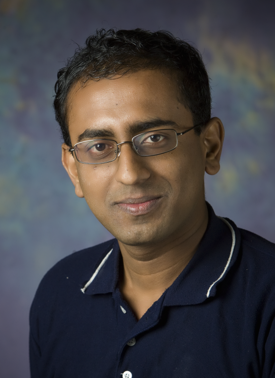
Communications and Signal Processing Seminar
Efficient Data-Driven Learning of Sparse Signal Models and Its Applications
Add to Google Calendar

The data-driven adaptation of sparse signal models has become extremely popular in applications in signal processing, imaging, data science and other areas in recent years. In this talk, we present several methods for efficiently learning sparse signal models from data. We focus mainly on sparsifying transform learning, and briefly touch upon recent work on efficient dictionary learning. Various interesting structures for sparsifying transforms such as double sparsity or union-of-transforms are considered, which enable their efficient learning and usage. We consider both batch and online transform learning. Online learning is particularly useful in applications involving large-scale or streaming data. The proposed data-driven methods are all highly efficient, scalable, and effective. We demonstrate the promising performance of adaptive signal models in several applications including image and video denoising, classification, and blind compressed sensing. We also establish several convergence guarantees for the proposed model learning and image reconstruction methods that were lacking in many prior works.
Saiprasad Ravishankar received the B.Tech. degree in Electrical Engineering from the Indian Institute of Technology Madras, in 2008. He received the M.S. and Ph.D. degrees in Electrical and Computer Engineering, in 2010 and 2014 respectively, from the University of Illinois at Urbana-Champaign, where he was an Adjunct Lecturer in the Department of Electrical and Computer Engineering from February to May 2015, and a Postdoctoral Research Associate at the Coordinated Science Laboratory from February to August, 2015. Since August 10, 2015, he has been a Research Fellow at the University of Michigan, where he is working with Prof. Raj Rao Nadakuditi and Prof. Jeffrey A. Fessler. His current research interests include signal and image processing, dictionary learning, sparse modeling, medical imaging, data science, inverse problems, compressed sensing, and large-scale data processing.
 MENU
MENU 
